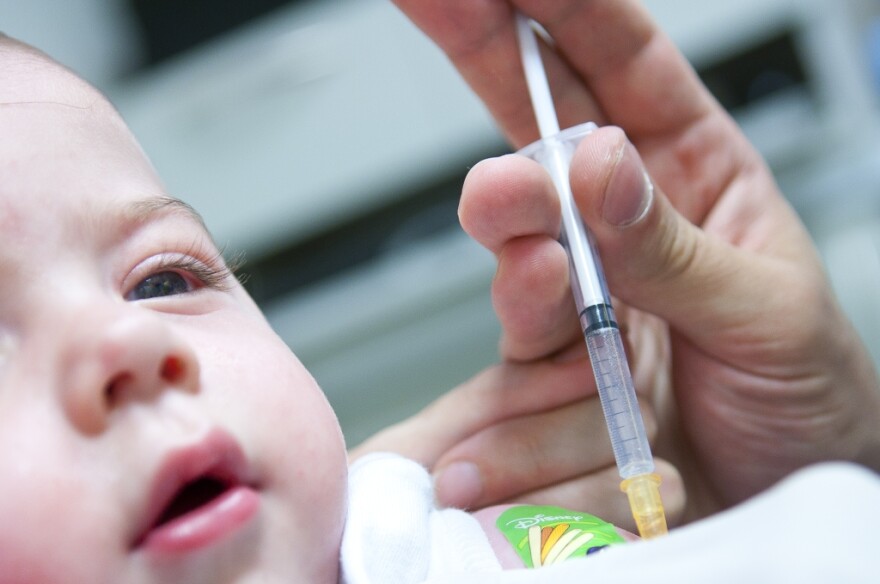This archival content was originally written for and published on KPCC.org. Keep in mind that links and images may no longer work — and references may be outdated.
Some parents may have found a loophole in California's vaccine law

Pointing to a sharp increase in the number of children with medical vaccine exemptions, a research letter in JAMA suggests some vaccine-wary parents might have found a legal loophole in the state's new immunization law.
The law requires all children entering day care, kindergarten or 7th grade to be vaccinated unless they have a medical exemption. It also gives physicians broader discretion to grant medical exemptions based on a child's condition or family history. The law eliminated personal belief exemptions, which experts say created hotspots of unvaccinated kids and contributed to the spread of contagious diseases.
Medical exemptions were rare before the law took effect last summer. Between 2000 and 2015, just .2 percent or less of California kindergartners had one each year. After the law took effect in 2016, the number of kindergartners statewide with a medical exemption increased threefold.
The increases in medical exemptions were mainly concentrated in Northern California and, to a lesser extent, in Santa Barbara, Orange and San Diego counties. The researchers note the changes occurred in areas that, in the past, had higher rates of personal belief exemptions.
This change suggests that "some vaccine-hesitant parents may have successfully located physicians willing to exercise the broader discretion provided by [the law]," the researchers write, noting their finding is based on just one year of data.
Because the largest increases in medical exemptions occurred in regions with high rates of philosophical exemptions in the past, "portions of California may remain susceptible to vaccine-preventable disease outbreaks in the near future," they say.
The research letter's authors are Paul Delamater, a University of North Carolina geographer; Timothy Leslie of George Mason University's Department of Geography and Geoinformation Science; and Y. Tony Yang, of George Mason's Department of Health Administration and Policy.
The researchers say it's unclear if medical exemptions were underused prior to 2016; they posit that some kids eligible for medical exemptions could’ve had philosophical exemptions instead, because they were easier to obtain. They say the specific reasons for each medical exemption are also unknown.
Passage of the state law was spurred by the measles outbreak that began at the Disney theme parks in Anaheim in late 2014. Public health officials said a significant number of those who caught the measles in the outbreak were unvaccinated.
The law's authors, State Sens. Richard Pan (D-Sacramento) and Ben Allen (D-Santa Monica), said it was needed to help achieve herd immunity throughout the state. With herd immunity, there's a high enough level of vaccination in a population to protect everyone, including those who cannot be immunized for medical reasons.
